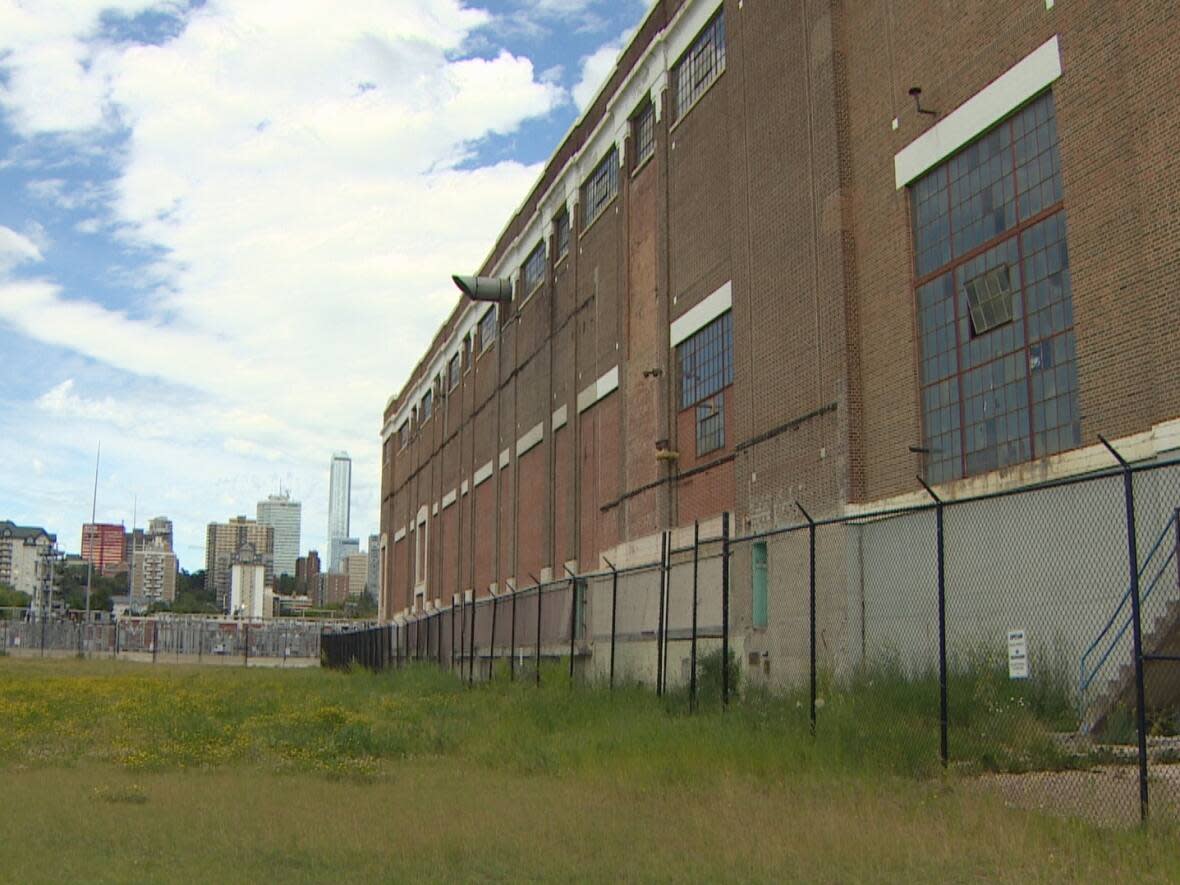Concerns raised over proposed Edmonton gondola because of traditional burial grounds

Edmonton residents concerned that a gondola station may disrupt traditional burial grounds — and their ancestors' remains — near the Rossdale power plant are planning to speak at city hall on Wednesday.
A number of Indigenous residents started expressing concerns last week after the City of Edmonton released a report outlining the details of a proposed land deal with Prairie Sky Gondola.
If city council agrees, Prairie Sky Gondola would pay the city about $1.125 million a year to lease land and operate the trams along the 2.5-kilometre urban ropeway.
Council's executive committee is scheduled to review the proposed agreement at the meeting Wednesday.
Matthew James Weigel, a Dene Métis artist, poet and PhD student at the University of Alberta, said the idea of a company digging in the ground to build a gondola is unsettling.
In an interview with CBC News last week, Weigel said at least one of his ancestors is buried at the site north of the power plant.
"It's troubling to say the least that someone would wish to disturb the area further than it's already been disturbed," Weigel said.
Chief Calvin Bruneau with the Papaschase First Nation said it's impossible to say what more is at the site.
"That place has been disturbed a lot but there's still a possibility of finding human remains or artifacts," Bruneau said in an interview with CBC News Monday.
Boundary questions
The city says archeological surveys and investigations have been done at the site over many years.
Studies indicate the burial ground and cemetery are north of the power plant and part of the larger archeological site of Fort Edmonton.
"The formal boundary of the burial grounds are outside of the footprint of the Rossdale power plant," the city said in an email statement last week.
The area is protected under the Cemeteries Act and the Historic Resources Act, the city said.
It's the traditional lands of the Cree, Dene, TsuuT'ina, Anishnaabe, Nakota Sioux and Blackfoot peoples and falls within the Métis homeland, the city notes.
In 1999, the City and Epcor began engaging Indigenous communities and descendants to commemorate and protect the Fort Edmonton Cemetery and Traditional Burial Grounds.
Rules must be followed
If council approves the real estate agreement, Prairie Sky Gondola must undergo several regulatory steps before it gets approval to build.
Jeffrey Hansen-Carlson, president and CEO of Prairie Sky Gondola, said the company must complete several impact assessments in the area before it builds, including environmental, geotechnical, archeological, heritage, and paleontology.
In addition to hiring a professional archeologist to work on the assessment, the company will have an Indigenous archeologist on the project team, Hansen-Carlson said.
"We're doing everything we possibly can to undertake this important work in the right way, in a respectful way."
Cam Alexis from the Stoney Nakota is also a board member, Hansen-Carlson noted.
Backward process
Weigel criticized the process that allowed the city to negotiate a real estate and licensing deal with the company before Indigenous nations were consulted.
"I think fundamental tenets of being good relations and being good members of the treaty agreement would be to obviously require that this be an Indigenous-led process from the get-go," Weigel said.
"That people and communities with ties to the people who are in that ground first and foremost would be listened to before anyone else."
Bruneau said no one has been in touch with him about the land deal with the city, and as far as he knows, no consultation has been done with Papaschase First Nation.
"That project shouldn't go ahead then, until they do a full consultation with everybody because it's Treaty 6, 7 and 8 and you've got Papaschase, Michel Band and Métis Nation."
Robust engagement planned
Hansen-Carlson said the company started consulting Indigenous elders, leaders, and professionals three years ago, but as part of the agreement with the city, it will embark on a robust public and indigenous engagement.
"If we don't do that plan then the deals do not become enforceable and no shovel goes into the ground," Hansen-Carlson said.
Hansen-Carlson encouraged people to view the proposal not so much as a means of transportation but as an experience and opportunity to "curate dynamic story-telling opportunities."
Art on the five station walls and inside the gondola cabins is one way to the relate history of the area, he said.
"Telling the story of our Indigenous partners, telling the story of the formation of the City of Edmonton — the good, the bad, the ugly — that's part of the experience."
Prairie Sky Gondola has lined up several people to speak in support of the project at the meeting including historical, cultural and archeological matters, he said.
The company has been actively promoting the project on social media and at in-person forums, and on Monday, it circulated a letter for the public to sign and send to city councillors in support for the project.


